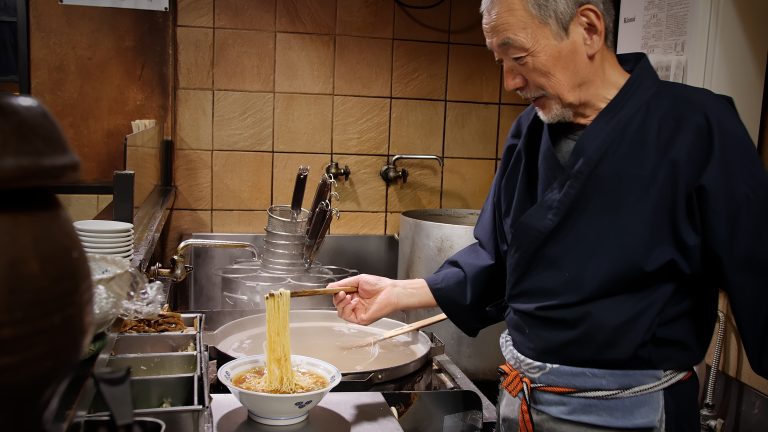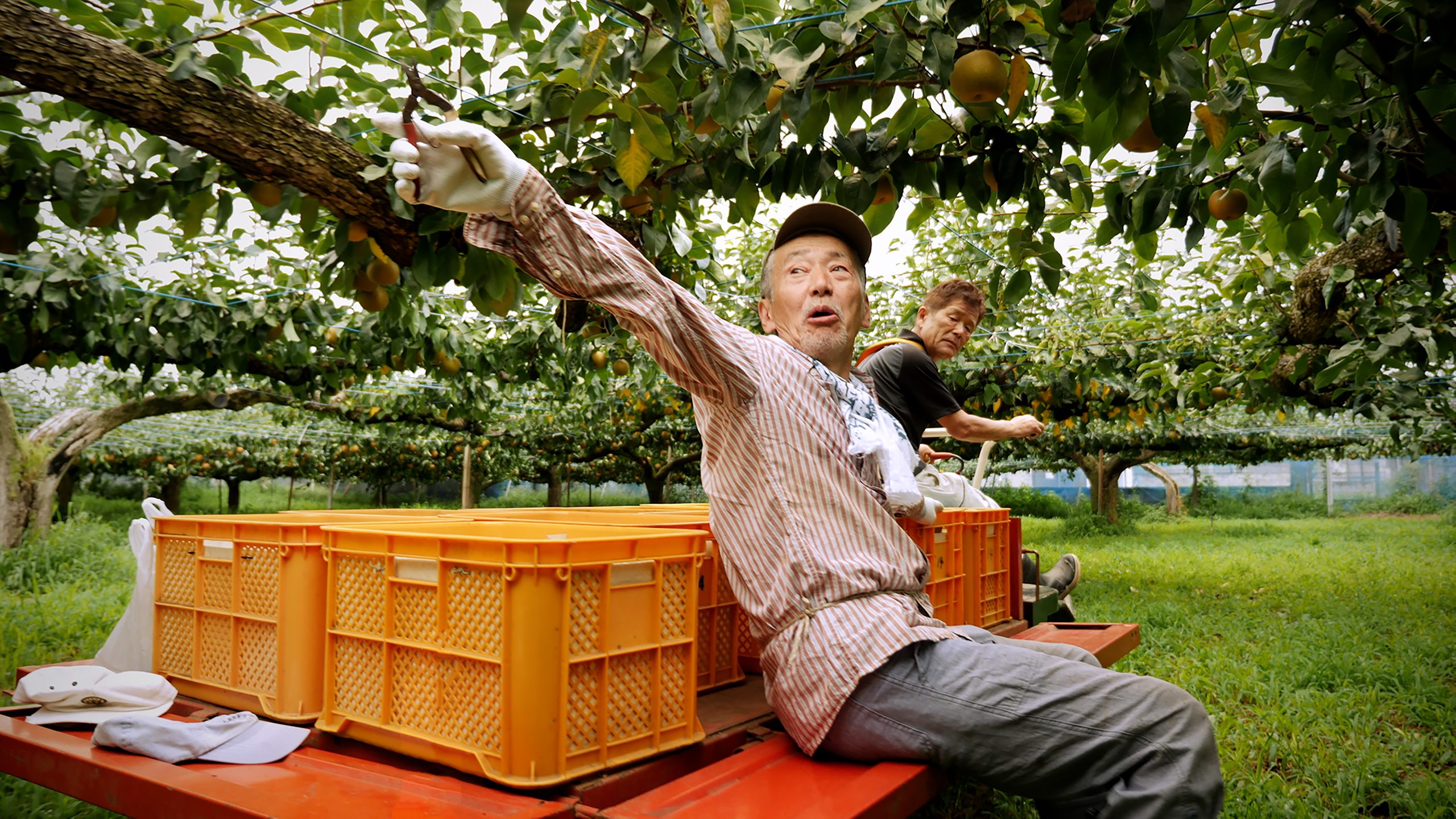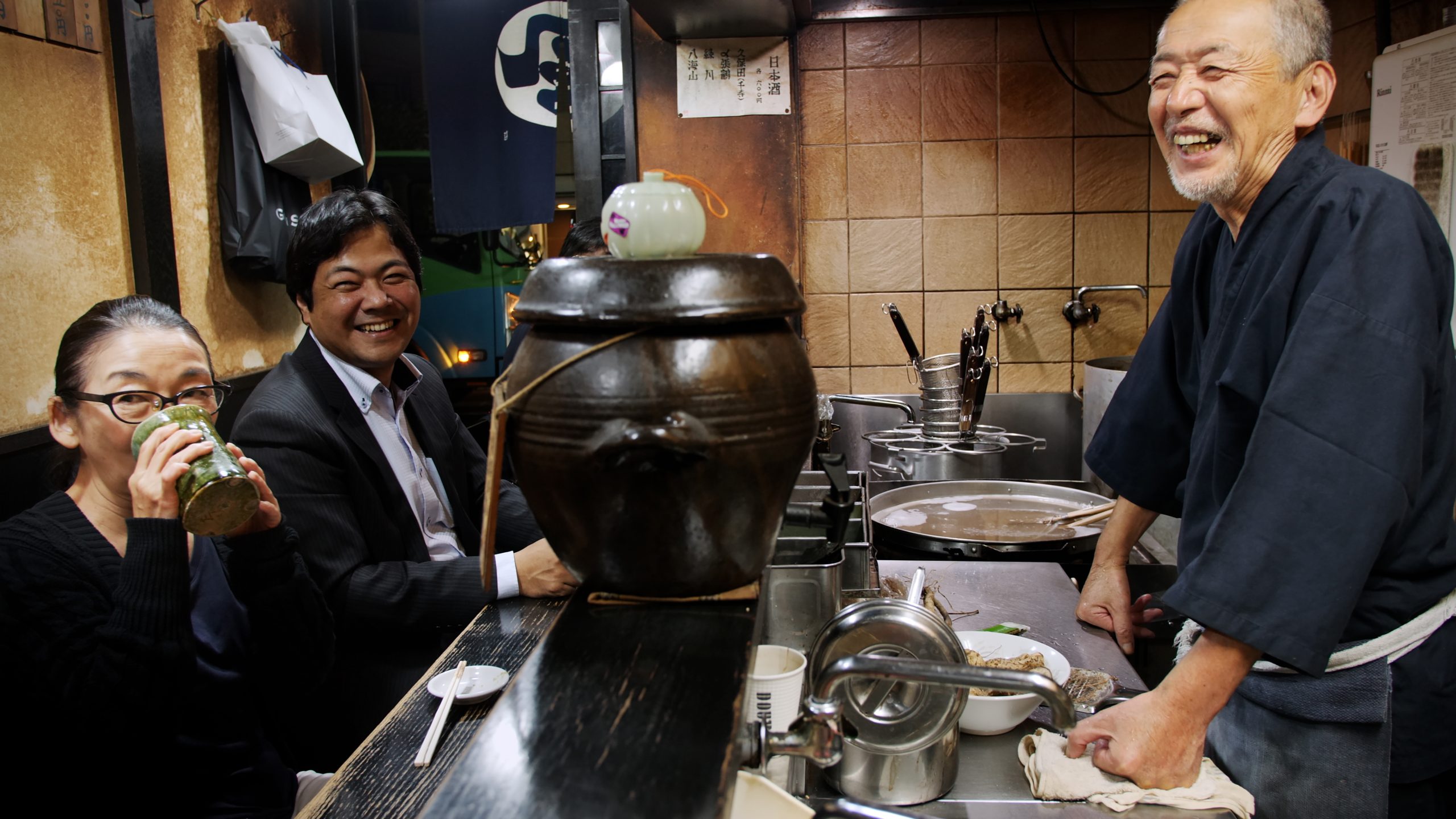
John Daschbach’s Come Back Anytime — produced by Wataru Yamamoto — lands at DOC NYC, after being acclaimed at various film festivals worldwide, from Australia to North America. The film captures the spirit behind a ramen-shop in the Japanese capital, that has drawn foodies to return continuously at any moment.
Bizentei has been run for over 40 years by self-taught ramen master Masamoto Ueda and his wife Kazuko. Over the course of time, they have created a community in Tokyo of fond appreciators of their dishes. Devoted customers share their memories and their preferences in food, as the film also ventures across the Nipponic countryside, to show the organic farming of greens; as well as the harvesting of pears, bamboo shoots, and wild mountain yams. The cuisine is farm-to-table and all the cultivated crops have grown organically.
Even the repellent for bugs is natural: made out of garlic, chilli peppers, wood vinegar and shochu (distilled spirits).

The cinematic journey traverses spring summer, autumn and winter, to demonstrate how the tiny restaurant offers a seasonal menu, according to what nature provides in every moment of the year. The narrative is paced by an engaging music score by Michael Shaieb, that allows a filmic synæsthesia to take place, as taste, touch, smell, hearing and sight, work in unison.
The storytelling is engaging and shows the humanity of the Ueda couple and all their faithful clients.
An accelerated sequence of the food preparation, lulled by Eugen Cicero’s Solfeggio in C Minor, conveys the symphony behind gastronomy. What emerges is that simplicity conquers all, first and foremast the way Master Ueda moulds the umami flavour. This taste was first scientifically identified in 1908 by Kikunae Ikeda, a professor of the Tokyo Imperial University, who had found that this glutamate was responsible for the palatability of the broth from kombu seaweed. He noticed that the taste of kombu dashi was distinct from sweet, sour, bitter, and salty and named it umami. Before him, 19th century French chef Auguste Escoffier had discovered it by cooking stock. This secret to deliciousness is definitely part of the hedonistic gastronomy that one may find at Bizentei.

Besides the delight of the tastebuds Ueda’s die-hard regulars are more than just customers, but true friends, and this mirrors the way Masamoto runs this business: it’s more than just a livelihood, it’s his reason for existence. However, Taishō Ueda has not bequeathed his culinary expertise to anyone. His cooking artistry will end with him.
In this way Bizentei somehow embodies the Japanese philosophical concept of mono no aware — the bittersweet acknowledgement of the ephemeral nature of all things. It is the awareness that everything in existence is temporary. Therefore Ueda’s ramen-shop should be enjoyed until it’s running, as part of the fleeting essence of being, because its beauty (and deliciousness) derives from impermanence.
Final Grade: A

